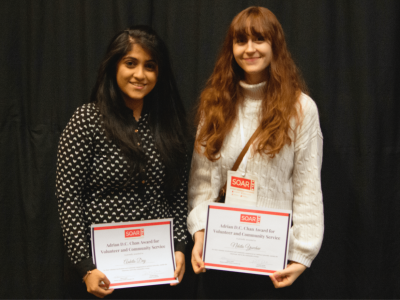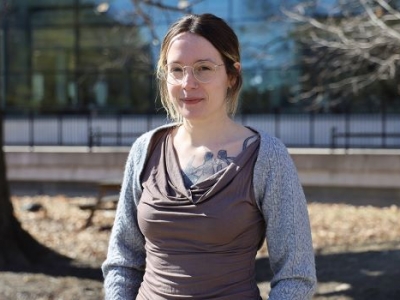From November 13 to 19, Bullying.org is launching the ninth annual Bullying Awareness Week.
In Canada, it’s been documented that bullying both at the elementary and high school levels is frequent and has serious negative consequences for victims. Only recently, after Ottawa high school student Jamie Hubley took his own life, a spotlight was placed on the issue of the bullying of gay teens.
“That’s why I decided to research in this area to see if I could help develop programs that would reduce the number of bullying incidents,” says Christine Polihronis, a master’s psychology student at Carleton.
Polihronis is interested in bystanders and victims as well as those who bully.
Bystanders play an interesting role in the process, according to the researcher. She pointed out that one study shows that up to 85 percent of children on a Toronto school playground were aware that bullying is happening but did not do anything. “I wondered why those children or other bystanders don’t intervene when a bullying incident occurs.”
She said it could be because people are scared to intervene or “they don’t see it as their responsibility to help out. That way, they can justify to themselves why they don’t have to feel guilty for their actions.”
She refers to another study which shows that, in 10 seconds of a person intervening in a bullying attack, the bullying stops. But if there is an audience of bystanders who do not intervene, the bullying lasts longer. “The perpetrator gets reinforced and the victim gets a message that everyone thinks bullying is okay.”
“So it makes sense that, if we can find a way to influence bystanders to act, this would help decrease that amount of bullying that is going on,” adds Polihronis.
To address this question, Polihronis is using data from over 17,000 students in Ontario that was led by Dr. Tracy Vaillancourt at the University of Ottawa through a grant funded by the Social Science and Humanities Research Council of Canada.
The psychology student will be defending her thesis in December. After that, she will continue to work with her faculty adviser, Dr. Tina Daniels, to pursue her PhD at Carleton. Daniels is a recognized leader on bullying research in Canada and a member of PREVNet (Promoting Relationships and Eliminating Violence Network). “It was working with Dr. Daniels that first attracted me to do my graduate studies at Carleton.”
Says Polihronis: “In conjunction with the University of Victoria, we’re also conducting a two-year study that will follow specific students through grades 1 to 4 to help educate them that bullying should not be tolerated. We will reach out to potential victims, bystanders as well as possible perpetrators by giving all children a common language to identify what they can do in bullying situations, and also to seek help from parents, school personnel and community members.”
The researchers will use an existing B.C.-based program called WITS for their study. WITS brings together schools, families and communities to help elementary school children deal with bullying and peer victimization.
“Bullying is a group process, so you need to look at everyone involved including bystanders and also members of the wider community in order to come up with relevant solutions,” says Polihronis. “It’s a terrible problem that can end up killing people so we need to take action now.”
**Note: Read more in the Toronto Sun.
Wednesday, November 9, 2011 in Grad Student Research, News
Share: Twitter, Facebook





